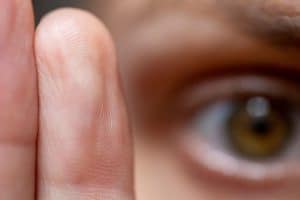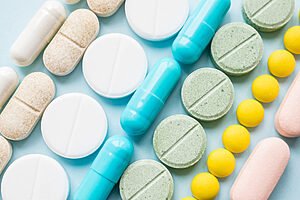Over 60,000 overdoses occurred nationwide in 2016, with nearly 175 people dying daily. Drug overdoses kill more people annually than suicides, homicides, car accidents, and guns. These numbers increase every year. Massachusetts continues to have one of the highest rates of substance use in the country. As of 2016, data reported by the National Survey on Drug Use and Health (NSDUH), just over 955,000 Massachusetts residents admitted to using illegal or illicit drugs within the last month. Illegal or illicit drugs include marijuana, alcohol, cocaine, heroin and other opioids, methamphetamine, designer drugs, synthetic drugs, and prescription misuse.
If you or a loved one are in need of Massachusetts drug addiction treatment, don’t hesitate to contact us today at 413.570.9698.
Massachusetts Statistics for Substance Use Treatment
According to data provided by the Treatment Episode Data Set (TEDS), there were 82,942 admissions into drug rehabs in Massachusetts in 2017. Of those who sought treatment in 2017, some 67.8 percent were men, and 32.2 percent were women. Substance use treatment in Massachusetts has been restructured in recent years in an attempt to address the opioid crisis that is plaguing the state. This has increased overall access to treatment and upgraded the quality of care available for those in need of rehab in Massachusetts. Massachusetts has refocused attention on treating addiction and measuring the success of the changes that were made. The data collected by the Bureau of Substance Addiction Services (BSAS) revealed that rates of substance use have decreased for all substances except heroin. Offering medically supervised detox, medically-assisted treatment (MAT) options, substance use treatment, aftercare, and relapse prevention, Massachusetts substance use treatment is working toward helping each individual with long-term sobriety.
The Massachusetts Opioid Crisis
Massachusetts has repeatedly ranked in the top ten for opioid overdose deaths. In 2018, there were 1,617 confirmed opioid-related overdose deaths. This does not include deaths suspected to be opioid-related or the cases still under investigation. The number of opioid-related deaths in Massachusetts continues to drop. However, the number of opioid overdoses continues to rise. In 2017, there were nearly 20,000 opioid-related emergency phone calls made in Massachusetts. The powerful opioid fentanyl has been linked to the increase in overdoses in Massachusetts. This drug is being illegally made in clandestine labs and snuck into other drugs like cocaine and heroin, and in some cases, pressed into pill form and sold as a prescription pill. [inline_cta_six] Officials think the reason for the decrease in death-related overdose can be attributed to increased access to naloxone, which reverses opioid effects. Many bystanders have naloxone, which means they can administer the reversal quickly, likely saving a life. In 2017, the BSAS revealed that over half of all drug rehab admissions were due to heroin, an increase of over 15% from 2008 data. About 59 percent of admissions reported previous or current heroin use. Recent heroin and opioid statistics in Massachusetts include:
- In 2018:
- 81% of opioid-related deaths were white
- 4% were Black, non-Hispanic
- 12% were Hispanic
- 1% were Asian
- 2% were other
- Since 2012, admissions for opioid addiction other than heroin have dropped by half.
- In 2017, Massachusetts had a lower opioid prescribing rate than the national average, 40.1 prescriptions per 100 people compared to 58.7 per 100 people.
- Admissions for heroin addiction have increased by over 15% since 2008, making up over half of all substance use treatment center admissions.
- Massachusetts was ranked number three in the country for fentanyl-related overdose deaths in 2016.
- In 2016, fentanyl was found alone or combined with other drugs in over 33,000 reports from the DEA National Forensic Laboratory Information Systems (NFLIS).
Other Commonly Used Drugs In Massachusetts
In Massachusetts, there is a significantly higher substance use and addiction problem than the national average. In addition to opioids, the following substances are commonly used in Massachusetts:
Alcohol
- Nearly 33 percent of admissions to rehab in 2017 were due to alcohol use and addiction.
- Over 52,000 substance use admissions in Massachusetts admitted to abusing alcohol in the months leading up to treatment.
- Individuals ages 18-25 have the highest rate of alcohol use in Massachusetts, at over 66 percent.
- Nearly 30 percent of people in Massachusetts reported binge drinking within the last month.
Marijuana
Marijuana is legal in Massachusetts for adults over the age of 21, with specific guidelines described by the Cannabis Control Commission (CCC). Although considered legal, some individuals who are struggling with marijuana addiction are still seeking treatment.
- Medical marijuana became legal in 2012 and recreationally in 2016.
- Approximately 3.5 percent of all admissions to substance use programs in 2017 stated marijuana was the reason for coming to treatment. A decrease of nearly 3 percent in 2008
- Marijuana use among individuals seeking substance use treatment for other drugs has held steady at about 25 percent in the same time frame.
Cocaine/Crack
- Approximately 4,400 people were admitted to rehab in 2017 to treat cocaine or crack addiction.
- Over 32,000 admissions reported recent cocaine use in 2017.
- Most cocaine in the United States is from Columbia.
- Cocaine is being mixed with fentanyl and being referred to as a new “speedball,” with increasingly fatal results.
Massachusetts Substance Use Fatalities, Injuries, and Court Information
In 2017, drug overdose deaths totaled 2,168 in Massachusetts. Comparatively, firearms deaths accounted for 262 deaths, and 171 died due to homicide. Just under 9,800 people received drug use violations in Massachusetts in 2015. First-time drug charges are usually referred to one of the 30 available drug courts. A total of 8,665 people were charged with driving under the influence (DUI) in Massachusetts in 2017. Over 5,000 people in the state received charges for drunkenness.
Get Help for Your Addiction at Swift River
BSAS has worked closely with substance use treatment agencies in Massachusetts to address the issues with drug and alcohol use and addiction in the state. They have developed an action plan that includes prevention, intervention, treatment, and aftercare (recovery support). The Massachusetts Organization for Addiction Recovery (MOAR) is another program that has been instrumental in providing support for those in recovery. Many substance use rehab facilities are available to meet the needs of those struggling with addiction. Our treatment specialists are available to help answer any questions or find a facility that best meets your needs. Reach out to us today at 413.570.9698 and let us help find a treatment program for you or your loved one.













